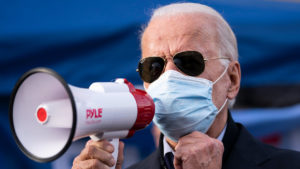Hanged, drawn and quartered: is it smart to make smallcap directors more personally liable?

Picture: Getty Images
One of the last things the Morrison government has done before setting an election date is launch a new and improved crackdown on corporate criminals.
This week, Attorney General Christian Porter asked the Australian Law Reform Commission (ALRC) to take a look at Australia’s corporate criminal responsibility regime.
It’s the latest in a series of moves designed to tighten the noose around company directors and management.
Investors in companies from GetSwift (ASX:GSW) and Big Un to LWP Technologies (ASX:LWP) will no doubt be pleased to have further recourse in cases where they allege wrongdoing has happened.
But among small caps, where the financial rewards of sitting on boards tend to be low yet the liability reasonably high, more tightening could backfire by further reducing the pool of ‘good’ people who want to serve on a board.
Furthermore, much of the good work in reigning in small cap directors has already happened — and it hasn’t been by the regulators.
Making it easier to punish white collar crims
The review, led by federal court judge Robert Bromwich and due on April 30, will consider whether the law needs to be changed to make individuals more liable for corporate misconduct.
It is another step in a process that includes the 2017 ASIC Enforcement Review Taskforce, the new Banking Executive Accountability Regime (BEAR), the banking Royal Commission, ASIC’s newly active approach to litigation, and increases in corporate criminal penalties in February.
“We consider it likely that the ALRC will make a number of recommendations that expand the ways in which criminal responsibility can be imposed on both corporations and individual executives, and make it easier for liability to be imposed for corporate criminal misconduct,” law firm Gilbert and Tobin said yesterday.
To successfully prosecute directors as the law stands now they must be involved with or have proven knowledge of a contravention. The review may recommend to lower the bar in this area.
Small cap investors want action
The law firm noted a regulatory appetite to hold large corporations and their executives to account, but there the smaller end of the market is hungry for action too.
Private demands for ASIC to investigate companies like LWP, Migme, and Pacific Dairies (ASX: PDF) have either gone unanswered or, as in the case with LWP, foundered on lack of evidence.
But the new measures are not likely to fulfil investors’ need for retribution, and may even make things worse.
- Subscribe to our daily newsletter
- Join our small cap Facebook group
- Follow us on Facebook or Twitter
Armytage Private chairman Lee Iafrate says stricter penalties won’t deter the really bad eggs and will reduce the quality and the quantity of good people wanting to be a director of a small company.
“There is absolutely no doubt that the continued increased scrutiny from ASIC and Hayne has made people start asking why would you bother be a director of a smallcap. You’re earning $30,000 or $40,000 a year, you’ve got millions of dollars of liabilities, plus the torching of your reputation. The cost benefit is just not worth it,” he told Stockhead.
“I know a lot of capable, experienced corporates who’d rather fly to the moon upside down than sit on a public board.”
He reckons the bad eggs on small cap boards will continue to flout the law, no matter what it is, and new regulations, if applied stringently to small public companies, will only reduce the number of responsible candidates.
Holding Redlich partner Harry Kingsley says regulators are looking for “bang for their buck” when they investigate and prosecute.
A small miner burning $3m on a dodgy prospect owned by a mate isn’t really worth their while.
It’s not all bad, there is hope
Instead, better control of smaller listed companies has come by the market operator ASX getting stricter on disclosure and board composition.
Kingsley says these rules are putting companies on notice that they’re being watched and can’t get away with fudging figures or news anymore — unless they’re really determined to do so.
One recent example is PinchMe (ASX:PIN) which breathlessly told investors of a big contract with a secret customer, only to be forced to admit on pain of suspension that actually, the customer was Nestle, a company it had hyped in the IPO prospectus months earlier.
The ASX is also now watching when companies announce big news and then a capital raising, in an attempt to stop them from sitting on a finalised contract until the market is primed to give them money.
UNLOCK INSIGHTS
Discover the untold stories of emerging ASX stocks.
Daily news and expert analysis, it's free to subscribe.
By proceeding, you confirm you understand that we handle personal information in accordance with our Privacy Policy.








